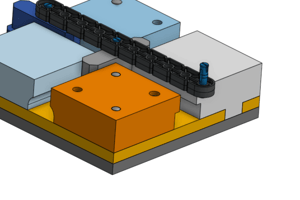Podcast
Questions and Answers
Which of the following specialties are included in maternity nursing? (Select all that apply)
Which of the following specialties are included in maternity nursing? (Select all that apply)
- Pediatric nursing
- Prenatal care (correct)
- Neonatal intensive care (correct)
- Infertility care (correct)
What age range does pediatric nursing involve?
What age range does pediatric nursing involve?
Birth to 18 years
What is one of the definitions of quality in nursing according to the nursing manager?
What is one of the definitions of quality in nursing according to the nursing manager?
- Wise use of resources (correct)
- The delivery of safe and effective care
- Positive patient response to medications
- Positive patient feedback
The Institute of Medicine defines quality as the degree to which health services improve health outcomes.
The Institute of Medicine defines quality as the degree to which health services improve health outcomes.
Name one way nurses can improve quality of care.
Name one way nurses can improve quality of care.
Which roles are included in maternal-child and pediatric nursing? (Select all that apply)
Which roles are included in maternal-child and pediatric nursing? (Select all that apply)
What does a Certified Nursing Assistant (CNA) assist with?
What does a Certified Nursing Assistant (CNA) assist with?
What is the purpose of a Licensed practical/vocational nurse (LPN/LVN)?
What is the purpose of a Licensed practical/vocational nurse (LPN/LVN)?
Flashcards are hidden until you start studying
Study Notes
Introduction to Maternity and Pediatric Nursing
- Maternity nursing encompasses the care of women from puberty to menopause.
- Specialties within maternity nursing include prenatal care, labor and delivery, postpartum care, newborn care, neonatal intensive care, women's health, and infertility care.
- Pediatric nursing focuses on children from birth to 18 years.
- Pediatric nursing prioritizes the safety of children.
- Pediatric nursing focuses on normal growth and development, acute, chronic, and critical care issues, end-of-life, and palliative care.
Quality in Maternal-Child and Pediatric Nursing
- Nursing Manager Definition: Wise use of resources, lack of errors in care, positive patient feedback.
- Bedside Nurse Definition: Delivery of safe and effective care.
- Physician/Midwife Definition: Positive patient response to medications and interventions without complications.
- Patient Definition: Meeting expectations for improvement and recovery.
- Institute of Medicine Definition: The degree to which health services for individuals and populations increase the likelihood of desired health outcomes and are consistent with current professional knowledge.
Ways Nurses can Improve Quality
- Work within the scope of practice, adhering to standards of care based on evidence-based practice.
- Make sound decisions in providing care.
- Deliver family and patient-centered care, respecting individual needs, values, and expectations.
- Identify errors and hazards, implementing safety principles.
- Collaborate with the health care team to reduce errors and improve care.
- Utilize hospital resources cost-effectively by minimizing waste of materials and time.
- Provide equitable care to all patients, regardless of gender, ethnicity, culture, or socioeconomic status.
Roles in Maternal-Child and Pediatric Nursing
- Licensed Practical/Vocational Nurses (LPN/LVN): Graduates with a program completion and NCLEX-PN/LVN pass, they provide care under the supervision of an RN, NP, physician, or midwife. May assist in preparing patients for pregnancy and delivery.
- Registered Nurse (RN): Graduates with a program completion and pass the NCLEX-RN. Provide holistic care to patients in various settings, including hospitals, clinics, and private practices.
- Nurse Practitioners (NP): Advanced practice nurses who have completed a Master's or Doctorate degree in nursing. They provide comprehensive care, including diagnosis and treatment, and may have a specialty in maternal-child or pediatric health.
- Clinical Nurse Specialists (CNS): Expert nurses with specialized knowledge and skills in a specific area of practice. They provide expert care to patients, educate other nurses, and consult with the medical team.
- Certified Nurse Midwives (CNM): Registered nurses with specialized training in midwifery. They provide prenatal, labor, and postpartum care, as well as newborn care.
- Certified Nursing Assistant (CNA): Provides basic care under the supervision of an RN, NP, PA, or physician. Assists with daily needs such as nutrition, dressing, and movement. Takes vital signs, collects specimens, and assists with transportation.
Studying That Suits You
Use AI to generate personalized quizzes and flashcards to suit your learning preferences.



